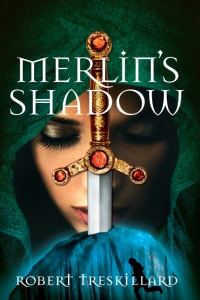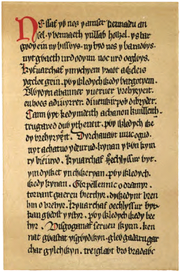Did King Arthur Fight The Vikings? A Fascinating Search For The Truth
I ran across a fun news article about Cornwall’s mid-summer Golowan Festival, which has its strongest representation in Penzance.
(If you want to get a taste of the culture of Cornwall, make sure you watch the video as well.)
So what was the theme of this year’s Golowan Festival in Penzance? Well… it was the Cornish story where King Arthur protects the coast from Viking raiders.
https://www.youtube.com/watch?v=ifCSyDXzAN4
And I laughed when I heard this, because the Vikings didn’t come until the 700’s, and King Arthur lived in the 500’s. How could King Arthur fight the Vikings when they didn’t overlap?

But then my daughter, Adele, told me a few of her theories. Now, mind you, her theories may sound strange, but she has researched both widely and deeply into the myths of Britain, Ireland, England, and Scotland, and you would be hard-pressed to gainsay her.
Her first (less controversial) theory is that there was more than one King Arthur … first of all an earlier one whose legends became attached to and confused with the later, 6th century one.
Her second (more controversial) theory is that this early King Arthur, Fionn mac Cumhaill (Finn McCool), and Robin Hood were all three contemporaries who fought the same people… in pre-Christian Britain.
This theory is “felt” as much as it is fact-based: She perceives the many threads of similarity at the heart of these legends and has found clues that other people dismiss or skip over.
And so she posited a very interesting idea: Since she has found evidence of both Robin Hood as well as Fionn mac Cumhaill fighting the Lochlainn (Norse, or pre-Vikings), then surely King Arthur did as well.
This was entirely a guess on her part. She challenged me to look at the oldest Welsh text about King Arthur found in the Red Book of Hergest to see who his enemies were.
So I looked, and after much digging, was very surprised to find that King Arthur did indeed fight the Norse. Here is what “A Dictionary of Celtic Mythology” by JAMES MacKILLOP says about the Dream Of Rhonabwy (a story in the Red Book Of Hergest):
The different heroes and companions that compose Arthur’s army are minutely described. Although Arthur is to ride to do battle with his enemies from Llychlyn [Norway] and Denmark, he is more concerned with the chess-like game of gwyddbwyll he is playing with Owain son of Urien.
 There it was. The text even uses the Welsh “Llychlyn“, which is equivalent to the Irish Gaelic “Lochlainn“, the EXACT word my daughter had used before we knew it was in the text.
There it was. The text even uses the Welsh “Llychlyn“, which is equivalent to the Irish Gaelic “Lochlainn“, the EXACT word my daughter had used before we knew it was in the text.
So, maybe that Golowan Festival in Penzance is right after all. Amazing!
Not that there’s any invasion from Norway in the book, but I’m delving into the fascinating history of King Lot and his family background.The other nice thing about this is that I have now learned the ancient name for Norway, which will come in mighty handy for my Book 2 of the Merlin Spiral: Merlin’s Shadow.
 Also, if you’re interested in a novel that includes both King Arthur and (proto) Vikings, then look no further than Lars Walker‘s BLOOD AND JUDGMENT!
Also, if you’re interested in a novel that includes both King Arthur and (proto) Vikings, then look no further than Lars Walker‘s BLOOD AND JUDGMENT!
Here’s the super-fun description of the novel:
All Will Sverdup wanted was to play Hamlet in an amateur production. He never counted on getting sucked back in time and into the body of the original, historical Hamlet in sixth-century Denmark. His fellow actors (along with the real Hamlet) never expected to be transported to an alternative universe where Shakespeare’s play was real–with them perfectly placed to live (and die) their parts. But now that the impossible has occurred, they must decide–do they dare play out their roles until the blood-soaked climax?


That is an interesting theory. It’s the first I’ve heard of it, but the text seems to point to the possibility. Thanks for sharing the info, Robert.
Thanks for stopping by, Steven.
Now, I myself am hesitant with her theories, and so I was quite surprised to find it held out in this case. We have lively debates around here!
This is not to say that the Welsh text is accurate in all these matters, but it makes one wonder if there are deeper facts that survived the oral tradition and ornamentation of the legends—ones we often ignore.
Anyway, it was interesting enough to share!
-Robert
Wow, this is really interesting. Thanks for such a great post!
God bless,
Taylor J. Beisler
http://www.taylorbeisler.com
http://www.impossiblewriter.wordpress.com
Thanks for stopping by, Taylor. As you can see, I’m in to all things Arthurian as well as sharing tips on the craft of writing.
This was an interesting idea to research, and even though the Red Book of Hergest was written down somewhere in the 1200s, it records an oral tradition far older that hints back to the pre-Christian Welsh era. I wish I had more time to study it.
I think it is interesting, but I am from Denmark and I have a very big interest in Danish and Nordic myths and history. The danes did actually go to England in to periods of time. THe mist well known was the viking-age which is in 700´s to 1000´s . The vikings were from Denmark and Norway(the swedes went east to Rusland) but before that the danes went to England together with the germans, they were known as the angles-saxons. They were from the Holstein area, which have been a part of the Denmark in a few periods of history. So you can say that the vikings were there 2 times. But the saxons were more barbaric than the vikings(the vikings were farmers) So your daughter is a very clever girl…
Merry Christmas Sara!


And thanks for stopping by and commenting… I knew about the Anglo-Saxons, but had not realized that the Danes were part of that invasion. Very interesting! I will now have to dig deeper into that history, as the Anglo-Saxons will play a big part of my series beginning with the third novel.
-Robert
Another hint, the Saxons were different tribes.. So you need to find different places in Germany to locate where they were from.. The Juts were from south DEnmark and Nortsh Germany.. They joined the other tribes to England.. And became the Angles-Saxons
Thank you for the info!